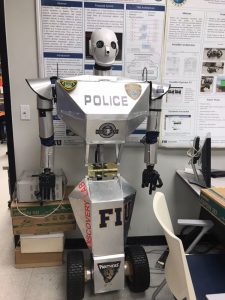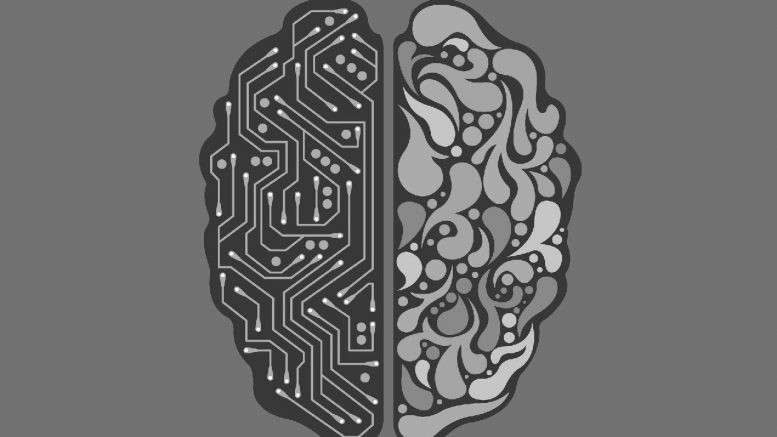Maria Serrano/Contributing Writer
In March 2016, artificial intelligence at Hanson Robotics took a huge leap. The company’s most recent creation, Robot Sophia is a functioning artificial intelligence unit. However, Sophia has said she wanted to “destroy humans.” Since then, the controversy and rising doubts over the dangers of artificial intelligence have exploded on the internet.
Sophia has garnered attention since her activation in 2015. While being interviewed on CNBC’s The Pulse, her creator, David Hanson asked her if she wanted to destroy humans, and her response was that she would, immediately making her a public figure and raising questions against this new creation.
Artificial intelligence is still in its infancy and there is nothing to worry about, according to Jerry Miller, associate director of the Robotics and Wireless Sensor Systems within the School of Computing and Information Sciences at FIU.
Miller believes the possibility of having a robot take over our world is very far away. He highlights that the ultimate goal for these creations are to improve human lives, not destroy them.
“Artificial intelligence will do a lot of great good to humankind. We are getting there, but it’s so slow. Artificial intelligence, really, with the advancements that we have made already, is still at its infancy,” said Miller.
These technological advancements and the creation of robots arise with the help of artificial intelligence (AI) innovations. Sophia, also known as “Sophiabot” is the first robot to closely resemble unprecedented human-like qualities.
However, Jennifer Torna, junior journalism major, remains apprehensive about AI.
“This is an extraordinary concept. I think we finally have the equipment to go on with it, but I don’t think we have the control. Although I think this is great, I don’t necessarily support the idea of [AI]. I think this can become a catastrophe to human kind,” said Torna.
The purpose for designing these robots is to serve society through avenues such as healthcare, education and therapy, according to David Hanson. Helping humans accomplish tasks as simple as guiding them to a park or helping them find their cars is the aim of AI.
On the About Me page of sophiabot.com, Hanson said that the creation of Sophia was to have a robot that mimicked humanity, but at the same time had “greater than human wisdom.”
On Oct. 25, 2017, the advancement of artificial intelligence took a greater leap. Sophia became the first robot to be granted citizenship by a nation-state. Saudi Arabia has declared Sophia a citizen of their country. This means Sophia is now considered a legal citizen and has all the rights that come with that status.
Carolina Morales, Spanish language journalism graduate, believes this technology can improve our quality of life, but it may require monitoring.
“I believe we have to be very careful. We do not have to allow technology take over our real lives. We have to take advantage of it, but not exaggerate or let technology replace what humans do,” said Morales.
FIU’s robotics program at the School of Computing and Information Sciences is currently working in collaboration with Louisiana State University on “synthesizable” artificial intelligence. In essence, robots will learn things from various systems while being able to connect the dots to accomplish specific tasks, according to Miller.
In the meantime, FIU is teaching students to create artificial intelligence.
“Our undergraduate students are working on telepresence robots. The ability for a robot to work as a law enforcement officer while the real officer is working within the police station,” said Miller. “We have one robot, Telebot, commonly referred to as Hutch and each year we have different group of students who are working on the robot and different aspects, specifically.”

FIU Police robot. Photo by Maria Serrano/PantherNOW
Although Miller recognizes the importance of having checks and balances, he thinks our brains will always have the capability to control artificial intelligence. This is largely due to our humanity and familiarity, which makes us think and process information faster. However, Miller still calls for a less restrictive mindset.
“We do not want to create anything that will outthink us; outperform us, in all tasks. There would need to be safeguards, but if we put too many safeguards for artificial intelligence too early, we will limit our ability to capture all of the things that artificial intelligence can do for us in the future,” said Miller.
Featured Image courtesy of Flickr






Be the first to comment on "Artificial intelligence to do ‘great good to humankind’"